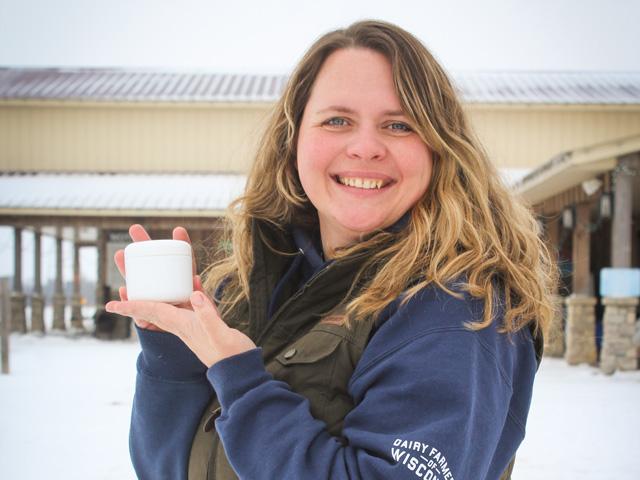Father and Son Switch Roles To Fit Their Lifestyles
A Better Balance
Sometimes the obvious business option isn't the best life path. That's what South Carolina's Caleb Coleman determined in 2023 after years of growth he and his father had experienced in their seed business.
At the young age of 30, Coleman concluded he couldn't properly do justice to all three main elements in his life: the seed business, their farm operation and his family -- wife, Morgan, and 3-year-old son, Watson.
"What was the point of making this money if you can't see your kid enjoy some of it," Coleman says. "I decided I'd rather be home more." Today, he farms just under 1,000 acres of corn, soybeans and wheat, along with sesame grown on contract.
CHANGING COURSE
The decision wasn't an easy one. Prior to the change, Coleman farmed and also served 10 regional customers providing cover crop custom seed blends. While 10 may not sound like a lot, one of his clients was using 8,000 acres of cover crops on eastern South Carolina's sandy soil.
"I'd get done with harvest and go immediately into blending cover crop seed as hard as I could, because everyone wanted their cover seed yesterday," Coleman explains. "It just got to be a lot."
A decade ago, before he even finished college at Clemson University, Coleman had begun working with his father, Carl, on the use of cover crops on their farm. That interest eventually led to him growing cover crops for seed and selling what they didn't use. While at the National Farm Machinery Show in Louisville, Kentucky, one year, he was recruited by a Western-based cover crop company to sell its seed in the Southeast.
P[L1] D[0x0] M[300x250] OOP[F] ADUNIT[] T[]
Within a few years, Caleb and Carl started their own seed business, Little Mill Seeds, either growing or contracting with other growers to produce wheat or cereal rye. They would also buy cover crop seeds not generally grown in the Southeast, like clover or radish, to make available to customers.
In an interesting twist, their cover crop seed sales led the Colemans to selling seed for the major row crops -- corn, soybeans and wheat, as well.
As Caleb continued to handle cover crop seed sales, Carl took on row crop seed sales. But, they didn't sell the seeds of the major companies. Instead, they marketed off-patent or public hybrids and varieties to cut farmer costs. For instance, they use corn from companies such as Nebraska-based Seitec and Hybrid85, as well as Augusta Seed Co., in Virginia. They also use public varieties developed at Clemson University.
"Dad knew that farming was a good way to make a living," Caleb says. "But, you need a niche to subsidize the bad years. He preached a backup plan." For years, Carl's backup had been a steady business of doing custom chemical applications. Cover crop seeds became Caleb's niche.
TIME FOR A SWITCH
The seed business grew, and within eight years, the Colemans had upgraded into larger facilities three times. In addition, the 800-acre Coleman farm picked up another 200 acres.
"The business grew to the point that I couldn't continue to farm and run the seed business," Carl says. "Caleb really enjoyed farming, so we agreed to switch." Caleb's primary responsibility became the 1,000-acre farm, while Carl took on the seed business full time. Not surprisingly, they help each other when needed.
Caleb's longtime cover crop clients were turned over to his dad. Both Colemans are quick to add that none of this would have been possible if Caleb's brother-in-law, Michael Benjamin, married to Caleb's sister, Heather, hadn't started helping with the seed business. An insurance salesman by trade, Benjamin left his regular nine-to-five job to work full time in the seed business.
In the process, Little Mill Seeds became Choice Ag as the Colemans and Benjamin thought the name change better reflected the choices they offered farmers.
"We can sell fully traited, Roundup Ready corn for $100 less per bag," Carl says. "We deal with independent companies who are willing to give us a deal we can then pass on to the farmer."
It isn't like the Coleman farm doesn't work hand in glove with the seed business. In addition to using cover crops from Choice Ag, Caleb also grew 200 acres of sesame last year on contract, with the seed being provided through Choice Ag.
Choice Ag has benefited from a nearly 80% increase in the use of cover crops (excluding Conservation Reserve Program acres) in the U.S. since 2012, according to the Census of Agriculture. Twelve years ago, more than 10 million acres were planted to cover crops. That number increased to slightly less than 18 million acres by 2022.
A BETTER BALANCE
As for the job swap, Caleb's wife, who works a marketing job from home, says the change has been beneficial.
"Caleb does a great job prioritizing and making his family a priority, too," Morgan says. "He lets us know ahead of time when the farm is going to keep him working. I won't say it is always easy, but this is a fantastic way for Watson to grow up, around tractors and heavy machinery. He loves it."
And her stay-at-home job does offer Morgan some flexibility to make the occasional lunch drop-off or a run to the machinery dealer for a part.
For Caleb, the change means more time to spend with his family. "We're happy to make a living off the land and enjoy life," he adds while holding young Watson in a wheat field.
[PF_0125]
(c) Copyright 2025 DTN, LLC. All rights reserved.




